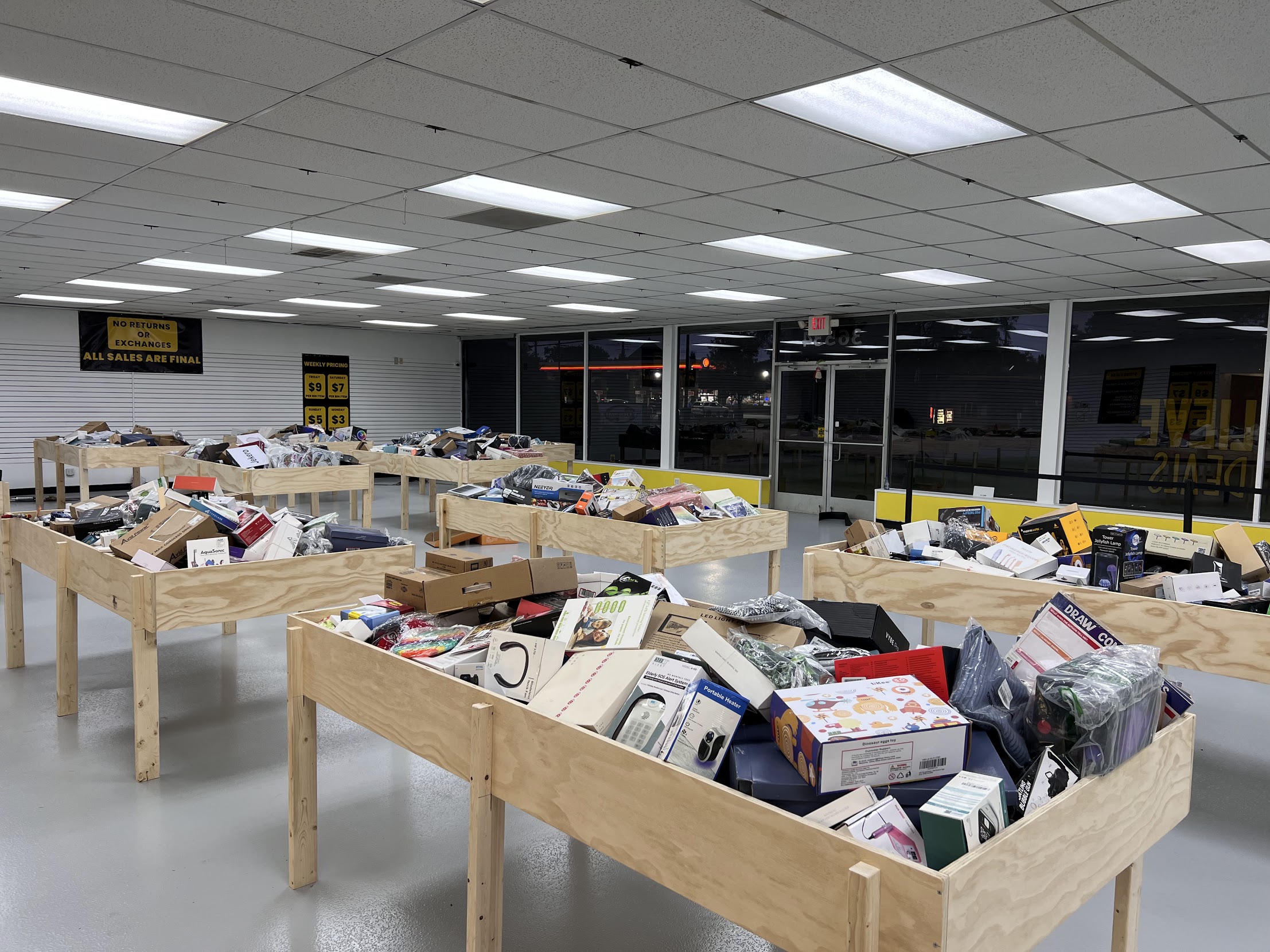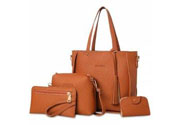Diving into the Bins: A Look at How Bin Stores Turn Discounted Treasures into Profits

In the ever-evolving landscape of retail, a unique concept has emerged: the bin store. These stores, often bare-bones and warehouse-like, offer a treasure hunt for bargain shoppers, selling a hodgepodge of discounted merchandise – closeouts, overstock, unwanted items, extra stock, overstock products and even abandoned inventory – all displayed in overflowing bins. Here we will delve into the fascinating world of bin stores, exploring their operational model and how they breathe new life into excess inventory and dead stock.
The Allure of the Bargain Bin: Why Bin Stores Thrive and customers love closeouts.
Bin stores capitalize on a fundamental human desire: scoring a great deal. They offer a treasure hunt experience, with customers sifting through bins for hidden gems at significantly discounted prices. These overstock products exist for a variety of reasons including, but not limited to, businesses shutting down warehouses filled with too much inventory, canceled orders that have to be offloaded from inventory to make room in the warehouse and companies going out of business and having to liquidated excess inventory. Here's what fuels the appeal of these inventory liquidation stores:
- Deep Discounts: Bin stores typically acquire merchandise at rock-bottom prices from various sources. This translates to savings of 50% or more for customers, making them a haven for budget-conscious shoppers. Keep in mind, when a business has to reduce inventory, they often offload merchandise at a fraction of the regular cost. This means closeouts of housewares, excess inventory of lawn and garden products, overstock pet products and toys and all kinds of liquidation products fill these stores. American consumers love bargain shopping so these are perfect closeout buyouts.
- Variety and Surprise: The ever-changing overstock inventory in bins creates a sense of excitement. Customers never know what hidden treasures they might unearth, from excess stock of electronics and houseware closeouts to overstock children’s toys and lawn and garden products on closeout.
- The Thrill of the Hunt: The bin-digging experience itself adds to the allure. The thrill of finding a coveted item at a fraction of the original price fuels customer satisfaction and loyalty. When a company is downsizing warehouses or going out of business, often times there is leftover merchandise sitting in the warehouse. This excess inventory needs to be disposed of one way or another. Closeouts, overstock products, excess inventory and abandoned merchandise can be offloaded to inventory liquidators. These liquidation buyers in turn sell these unwanted items at deep discounts to retail stores, and sometimes they are bin stores.
Behind the Bins: The Sourcing Game
The lifeblood of a bin store lies in its ability to source discounted merchandise, otherwise unwanted products and overstock merchandise that was not selling. When a company has overstock products that are either selling slowly or not selling at all, it has no choice but to liquidate the inventory to overstock buyers who know how to re-distribute closeouts to new markets. Here are some of the key channels:
- Liquidation Companies: These closeout companies specialize in acquiring excess inventory, dead stock, unwanted merchandise, abandoned inventory and slow selling products from importers, manufacturers, and businesses shutting down or downsizing warehouses. Often, warehouse costs are too high for businesses to afford and they have to get rid of closeouts or excess inventory taking up space in the warehouse. Bin stores partner with them to purchase truckloads of liquidation merchandise at a significant discount. If you have a business with overstock products and you are looking for a buyer for your closeouts, you can try a simple online Google search. Consider using search terms like these: closeouts, overstock products for sale, offloading excess inventory, keen to clear stock from warehouse, downsizing warehouse, shutting down operations liquidating all inventory, going out of business, inventory liquidation sale, offloading abandoned inventory.
- Customer Returns: Online retailers often sell returned items in bulk to liquidation companies. Bin stores can then pick up these returns at a discounted price, potentially offering perfectly good items at a fraction of the original cost. Today’s consumer has gotten used to buying overstock products and closeouts from mainstream discount stores. It seems the era of department stores and specialty shops selling products at full retail are not as popular as they used to be. Today’s consumer has more of a bargain basement philosophy and is looking for deals on discontinued products that companies may need to get rid of. They don’t want pay full price for something they can buy at a discount. Anytime importers or warehouses need to offload excess inventory, this creates a buying opportunity where consumers can get unwanted merchandise, excess stock, overstock products, closeouts and abandoned inventory that is no longer needed, for a discount.
Major retailers including TJ Maxx and Ross have build their business on this model of selling deeply discounted overstock goods at low prices. These leading retailers are selling closeout lawn and garden products off season, housewares closeouts due to package changes and canceled orders, and inventory liquidations of home goods, picture frames and excess inventory of wall décor.
- Overstock: When retailers have more inventory than they can sell, they may be willing to offload it at a lower price to bin stores. This can include seasonal items or discontinued products that are still perfectly functional. Even minor problems can make it challenging for importers to sell their inventory and they can’t let it just sit on pallets in the warehouse collecting dust. The best approach to getting rid of dead stock that isn’t selling is to offload the inventory at any price.
- Manufacturer Direct Deals: In some cases, bin stores may strike deals directly with manufacturers to buy discontinued product lines or slightly damaged items. This allows manufacturers to recoup some costs while bin stores offer unique finds to their customers.
- Abandoned Inventory: Occasionally, bin stores acquire overstock merchandise left behind by businesses that have shut down. This can be a risky proposition, as the items may be damaged or outdated, but it can also lead to some incredible finds. When a warehouse has inventory to dispose because the company shut down operations and left the inventory, the warehouse will try to offload everything and recoup some of the money owed to them.
The Art of the Bin: Strategies for Success
Running a successful bin store requires a strategic approach. Here are some key elements:
- Pricing Strategy: Bin stores often employ a dynamic pricing strategy. Prices may start high on restocking day and decrease daily, incentivizing early shoppers and faster inventory turnover. This creates a sense of urgency and encourages repeat visits. New closeouts are put on display at the beginning of the week, for the highest products. As inventory gets depleted during the week, the store is restocked with more excess inventory, closeouts and inventory liquidation deals for the consumer to sift through.
- Inventory Management: While the "bin" environment creates a unique atmosphere, efficient inventory management is crucial. Rotating stock regularly ensures a constant flow of new closeout items to keep customers engaged. Customers looking for closeout children’s toys, excess housewares inventory and overstock lawn and garden products can find amazing deals in bin stores. These retailers also sell Amazon returns and closeouts from Amazon or other ecommerce sellers.
- Customer Service: Despite the bare-bones setting, friendly and helpful staff can greatly enhance the customer experience. Assisting with product knowledge, answering questions, and ensuring a smooth closeout process foster customer loyalty. Getting rid of excess inventory doesn’t have to be a stressful problem; in fact, if done right, moving out overstock products and liquidating inventory can be easy.
Beyond the Bargain: Considerations for Shoppers
While bin stores offer exciting deals on closeout inventory, there are some factors to consider before diving in: Not every item in a bin will be pristine. Customers need to be prepared to sift through items and potentially encounter damaged or used merchandise. If your goal is the find a bargain, it is worth sorting through all the overstock products being offloaded in these stores. These products started their life as perfectly good products. But for one reason or another, they were slow selling products, the company overbought and had too much inventory, or the product was discontinued. But the reason for offloading the inventory isn’t important; all that matters is that it’s a good deal.
- As-Is" Policy: Most bin stores operate on an "as-is" basis. This means there are no returns or exchanges, so careful inspection before purchase is essential.
- Need vs. Want: The thrill of the hunt can sometimes lead to impulse purchases. Sticking to a list and focusing on needs over wants can help maintain a budget-conscious approach. Overstock and closeout housewares, excess stock of children’s toys, discontinued home goods and closeout pet products can all be great deals. But keep in mind your actual needs when looking at all these closeouts.
The Future of the Bin: A Sustainable Retail Model?
Bin stores present a unique opportunity to reduce waste and extend the life cycle of products. By offering discounted merchandise that might otherwise be thrown away or abandoned, they contribute to a more sustainable retail model.
Merchandise USA has been an inventory liquidator for almost 40 years. We can help if you are going out of business and shutting down operations, downsizing your warehouse, moving warehouses to reduce costs, or offloading abandoned inventory left behind in your warehouse. If you are keen to clear stock from your warehouse and want to offload inventory you may want to contact closeout buyers. When an importer brings in containers of housewares products from China, it is possible the inventory will not sell and has to be disposed of. There can be a need to offload excess inventory due to canceled orders, overbuying, discontinued inventory and changes since Covid.



